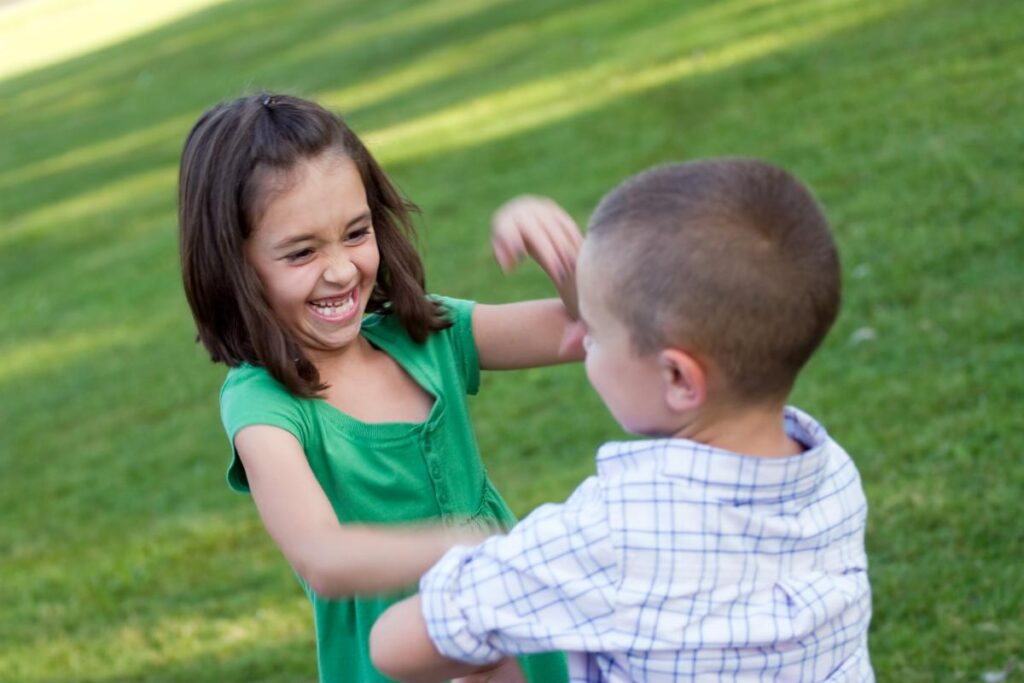The cry came from one of the boys in my 5 to 7-year-old group. “Miss Donna, she hit me!” She was already long gone from the scene.
Knowing the kids as well as I do, I sensed this was probably an act of mild reactive aggression, not the more serious kind that prevents kids from being able to access the programs here. Little kids still haven’t learned to use their words in some instances, because they are not quite sure which words to use. Or, ADHD kids especially, will react impulsively before they have a chance to consider other options to solve a problem. So, what can you do when your child or another child gets involved in a conflict that includes physical retaliation?
First, I talked to the little boy who was on the receiving end of the hit. I made sure that he was not really hurt, and didn’t need attention in the form of an icepack on his arm. He was upset of course but otherwise okay. Once I determined he was okay, and this is a CRUCIAL part that is missed in these interactions, I asked him what happened right before she hit him. I told him that I did not at all think hitting him was an okay solution, but needed to know what made her mad enough to do that.
He responded that he untied a string that she had tied to a toy that she was playing with and she got mad. I asked him if he had checked with her to see if that was okay for him to do before he did it. He replied he had not, so we discussed how that was his contribution to the conflict. When you dissect things this way, most kids will realize where it went wrong and why. My coaching with him finished with a reminder to ask before touching what someone else is already playing with.
I then went in search of the little girl who had gone back outside in the yard and found her in a hiding spot. I requested that she come out to talk to me and that she was not going to be in trouble.
The first thing I did, and this is another CRUCIAL part of the process, is to empathize that I knew that the boy had messed with the toy she was playing with without permission, and she had every right to be angry. I told her that the problem isn’t BEING angry, it was what she DID when she got angry and that I would be very sad if she hit anyone anymore, as she wouldn’t be able to come back and play. I said that we needed to work together to figure out other ways to be angry or to get help.
We talked about how to use a “stick-up-for-yourself” sentence, such as, “Hey, I’m playing with that and I don’t want you to do that.” And, if that didn’t work, to find me or one of the coaches to help her.
Little kids who react by hitting need to be taught the words to use, not just be told to use them. And, if we don’t allow the child who hit another child to have their say, and only punish them, we are losing an opportunity to teach the skills that they need to learn. Moreover, if we discipline only the child who hit, and do not address the child or children that provided the trigger action, we are only increasing the frustration of the reactionary child and the chance of more of the same physical altercations.









Leave a Reply